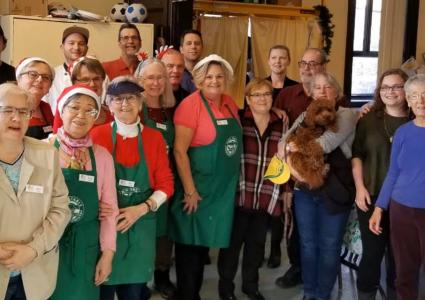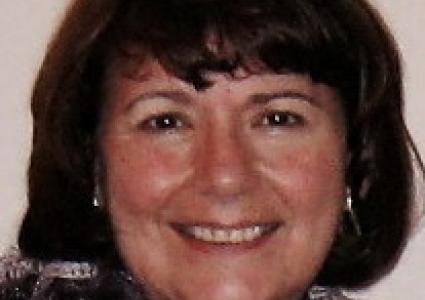Lately I've watched some pretty pointed and even rude videos telling people to quit giving cans of food and socks to food banks -the message is clearly, "JUST GIVE CASH!" Small non-profits like the Oak Table generally receive 2 or 3 types of donations. 1) General donations, where it is left up to the judgement of the non-profit where and how to use the money 2) designated donations where money may be given for a specific reason with or without consultation with the nonprofit and 3) donations in kind. I've been asked many times why we continue to accept donations in kind when we don't need that particular item right now, or we don't have anywhere to store them. This is a tough issue and a much more complex than simply telling people how you want them to give.
People give in ways that meet their needs as well as their chosen charity's needs. For example, some people work full time and are not available during the hours our services are provided. They want to do something, but writing a cheque does not give them much satisfaction. They are looking to be connected somehow. When they go out and buy socks and underwear, hygiene items and food; they feel like they have done some good, and the act of purchasing and delivering these items took thought and effort on their part. They feel connected and they feel like they have made a tangible difference. To them, this is much more meaningful than giving cash. I've been that person! When my siblings and I decided we didn't need more things at Christmas we decided to give what we would spend to charity. That was a lot of socks, but it felt good buying socks that were warm and of good quality for someone in need. At the time, I didn't even think of the storage problem those socks may have caused. Nor did it occur to me they could use my money to buy the exact size or kind their guests needed.
Similarly, when schools and workplaces, churches or families want to donate, it is often easier to collect items than money. When someone physically puts their contribution in the collection box they feel like they made an effort and it is tangible. Where kids are involved, buying or collecting the items can be used as an object lesson. It is heartening when families or students come to volunteer and bring along collections of items. These children are our future donors.
Sometimes our donors don't know we can only buy Transit Tokens with cash and only designated people from Oak Table can order and pick them up. We can use senior bus tickets, but they are not available for general full fare.. Donors may not know that with money we are able to purchase socks at wholesale prices through a small business owner we know. They may not know that at certain times of the year we get far more than we can handle, and at other times we don't have any. Today we ran out of long underwear, but because we depend on donations in kind it may be weeks before our request for more is answered.
The reality is as a small non-profit, if we say we don't want or need more socks, underwear, hats, mitts, gloves, scarves, or tuna, the donor will turn to an organization that does. If we say we don't have enough storage room to accept more donations, this is interpreted as us having enough, rather than the reality that we simply have very limited storage. We can't afford for that to happen, so we will pile donations in a corner and find storage off site if necessary. This may not the most efficient way to handle things but we need to balance what works for us with what works for the people wanting to give. Often a person will start their relationship by donating items, but as they become more familiar and connected with us they begin asking what and when we want items, or if we prefer cash. Some donors that began by collecting items for us are now monthly givers through post-dated cheques, CandaHelps.org or PAR.
Relationships with donors large and small is what makes for a vibrant, successful organization. Money gives us flexibility, but we are grateful for all the support we get, both in money and in-kind donations. We want our donors experience to be a good one for them as well as for us. After all, we are in this together and Oak Table can't do what we do without the generosity of others.


